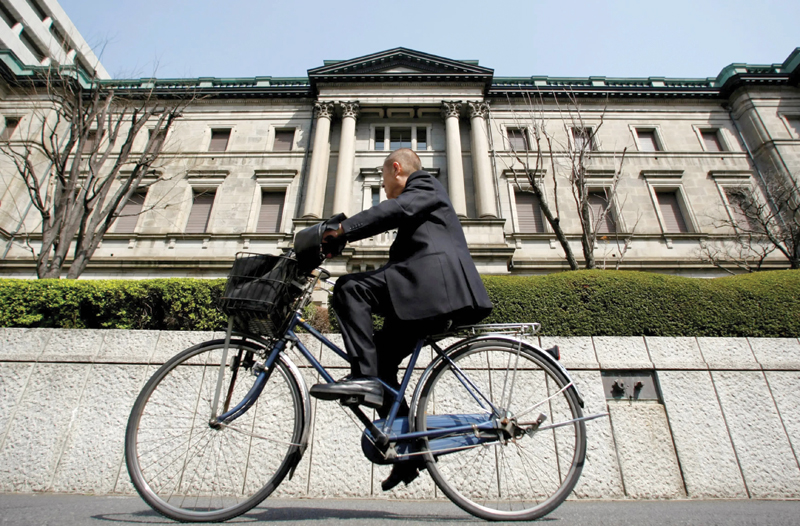

Leika Kihara -
Bank of Japan Governor Haruhiko Kuroda said the central bank will take necessary steps to stabilise markets jolted by the coronavirus outbreak, bolstering speculation about coordinated global policy action.
Kuroda’s comments, made in an emergency statement just days after a similar move by Federal Reserve Chair Jerome Powell, were welcomed by markets as a signal the world’s biggest central banks were mustering a coordinated response to the crisis.
Also, French Finance Minister Bruno Le Maire said that G7 major economies will take “concerted action” to limit damage from the epidemic, with the group’s finance ministers to discuss the best approach by phone this week.
Kuroda said markets have made “unstable movements” on heightening uncertainty over the impact of the epidemic.
“The BOJ will monitor developments carefully, and strive to stabilise markets and offer sufficient liquidity via market operations and asset purchases,” he said.
That suggested the BOJ will make full use of existing tools to flood markets with funds, before pondering additional monetary easing steps.
Indeed, the BOJ subsequently offered 500 billion yen ($4.62 billion) in two-week funds via market operations. Investors also expect the central bank to ramp up daily purchases of exchange- traded funds (ETF) to put a floor on stock prices.
“Kuroda’s statement focused on market operations and asset purchases, which meant the BOJ may make its ETF buying more flexible to support stock markets or take steps to avoid money markets from tightening,” said Yoshimasa Maruyama, chief economist at SMBC Nikko Securities.
In his own statement, Powell said the Fed would “act as appropriate” to support the economy.
Goldman Sachs’ economists Jan Hatzius and Daan Struyven said Powell’s statement “strongly hints” at a rate cut at or even before the Fed meets on March 17-18, as well as the likelihood of coordinated action.
“Chair Powell’s statement on Friday suggests to us that global central bankers are intensely focused on the downside risks from the virus,” Hatzius and Struyven said in a note.
Kuroda’s comments reinforced that view. Asian shares rebounded on Monday as investors placed hopes on a global policy response to weather the impact of the epidemic.
But some analysts warned markets against betting too much on additional BOJ easing or globally coordinated rate cuts, given the dwindling tools some central banks have been left with.
Former BOJ board member Takahide Kiuchi said Kuroda’s statement was not a preannouncement of an imminent easing.
“US, European and Japanese central banks could issue a joint emergency statement pledging to act against market turbulence,” said Kiuchi, currently an economist at Nomura Research Institute.
“That will probably happen before any joint interest rate cuts are pondered. In any case, I don’t think conditions have worsened enough yet for these things to happen.” The BOJ next meets for a rate review on March 18-19.
The European Central Bank is prepared to support the economy if needed but more action is not yet needed, ECB policymaker Francois Villeroy de Galhau said.
As of Monday, Japan had 962 coronavirus cases, including 705 from Carnival Corp’s Diamond Princess cruise liner, which was quarantined near Tokyo last month, according to the public broadcaster, NHK.
The outbreak has heightened fears of recession in Japan as supply chain disruptions, slumping overseas tourists and event cancellations hurt an already fragile economy.
Japanese auto sales fell 10.3 per cent in February from a year ago, data showed. Asia’s factory activity slumped with activity in China shrinking at a record pace.
Prime Minister Shinzo Abe said the government will announce a second batch of measures around March 10 to prevent the spread of the virus and mitigate its damage to the economy.
Any steps, however, will not involve big fiscal spending as Abe has repeatedly said the government will tap its 270 billion yen in budget reserves for now. — Reuters
Oman Observer is now on the WhatsApp channel. Click here



